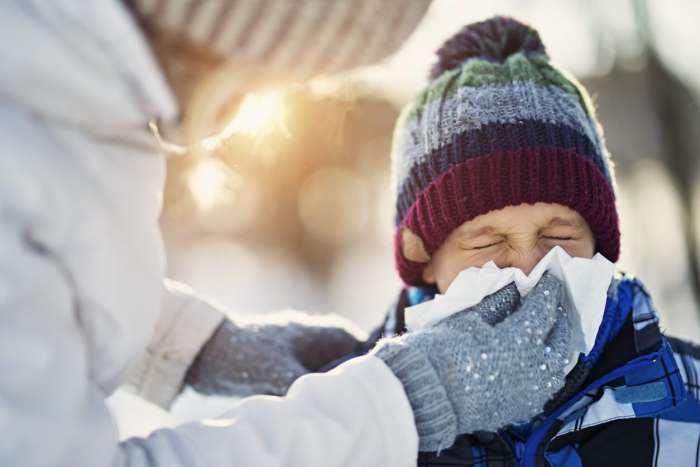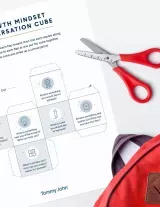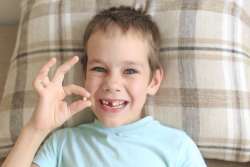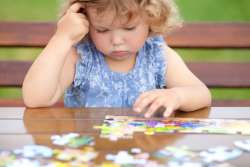Kids
-
KidsEmotional DevelopmentBy Jennifer Caffelle
Here are 30 simple and achievable mindfulness activities for kids focusing on sight, smell, touch, taste, and sound.
-
KidsInstilling Values and Manners
Preparing kids to be high achievers who lead happy, fulfilled lives is much easier said than done. Showing them how to persevere in the face of adversity is one of the best ways to help your children thrive. No one likes their kids to feel discouraged, but being challenged and experiencing failure are important to allow them to grow. Use these three science-backed exercises such as an emotional grid, a goal setting worksheet, and a conversational cube to teach skills like identifying emotions, working through challenges and practicing positive self-talk. These printables are perfect for learning life's teachable moments (even during unknown times) and make for a great non-screen activity!
-
KidsChildhood Development
Preparing kids to be high achievers who lead happy, fulfilled lives is much easier said than done. Showing them how to persevere in the face of adversity is one of the best ways to help your children thrive. No one likes their kids to feel discouraged, but being challenged and experiencing failure are important to allow them to grow. Use these three science-backed exercises such as an emotional grid, a goal setting worksheet, and a conversational cube to teach skills like identifying emotions, working through challenges and practicing positive self-talk. These printables are perfect for learning life's teachable moments (even during unknown times) and make for a great non-screen activity!
-
KidsEmotional Development
Preparing kids to be high achievers who lead happy, fulfilled lives is much easier said than done. Showing them how to persevere in the face of adversity is one of the best ways to help your children thrive. No one likes their kids to feel discouraged, but being challenged and experiencing failure are important to allow them to grow. Use these three science-backed exercises such as an emotional grid, a goal setting worksheet, and a conversational cube to teach skills like identifying emotions, working through challenges and practicing positive self-talk. These printables are perfect for learning life's teachable moments (even during unknown times) and make for a great non-screen activity!
-
KidsBuilding Self EsteemBy Robin Enan
If you're looking for positive parenting tools that will help build your child's self confidence and motivate and encourage your children, consider this list of words of encouragement for kids of all ages.
-
KidsEmotional Development
Use these feelings flashcards along with this feelings list to help your children identify and express their feelings and emotions.
-
KidsEmotional Development
With social and emotional needs on the rise and the methods of incorporation low or inconsistent, how can families provide the skills needed to foster emotional learning at home? Here are some tips for adults and caregivers.
-
KidsSocial DevelopmentBy Charise Rohm Nulsen
Should cell phones be allowed in school? A Pew Research Center study found that 65 percent of cell-owning teens bring their phones to school despite any bans that may be in place. Most schools now allow students to have cell phones but require them to be turned off during class because they can be disruptive and distracting. Read on for the pros and cons of allowing cell phones in school to help make the right decision for your child.
-
KidsFostering Responsibility
It’s vital to guide kids through the basics of financial planning. Here are three tips to teach them about the fundamental guidelines for saving money, watching it grow through compounding interest and understanding the need for financial security throughout life.
-
KidsFostering Responsibility
Momtrepreneur Sabrina Bradley explains why it's important to teach kids about entrepreneurship, and provides useful tips for instilling a strong work ethic and values in your kids.
-
KidsBehavior and Discipline
Here are three proactive and clear ways to make sure those new strategies in your toolbox are cemented in love.
-
KidsEmotional Development
Here are five losses that make this COVID-19 pandemic so devastating to our families, followed by some suggestions for embracing the grief we find ourselves and our children experiencing, without feeling overwhelmed.
-
KidsBehavior and DisciplineBy Charise Rohm Nulsen
It can be especially difficult to feel that we are doing our best with parenting during this challenging time, as we are all facing our own anxieties and mental health challenges. Fortunately, there are some strategies we can use to help our children deal with COVID-19 related anxieties.
-
KidsBehavior and DisciplineBy Miranda Altice
While it sounds nice to maintain a desirable homeschooling schedule, the reality is proving to be difficult for most. Cut yourself some slack, take a deep breath, and save your sanity by breaking some house rules during the pandemic.
-
KidsCommunicating with Your KidsBy Elisa Cinelli
At some point, every child will question whether the Tooth Fairy is real. As a parent, you can help ensure that your child learns the truth in the smoothest way possible. Here are five suggestions to make the conversation a bit easier.
-
KidsEmotional DevelopmentBy FamilyEducation Editorial Staff
Life Coach Tami Green weighs in on the number one skill parents should teach their kids: problem solving. She offers five tips and tricks parents can do everyday to help their children become better problem solvers for life.
-
KidsAutismBy Jacqueline Weiss
Dr. Timothy Buie, a Pediatric Gastroenterologist and Autism Medical Specialist at Boston Children’s Hospital, explains how specific diet interventions can impact children with autism.
-
KidsMental Health and KidsBy FamilyEducation Editorial Staff
When your child starts to display "big emotions", it's easier to join them and get mad and upset. But, it's more beneficial if you help them. Here are our top three tips for handling big emotions.
Join the Family
Your partner in parenting from baby name inspiration to college planning.
Subscribe




















